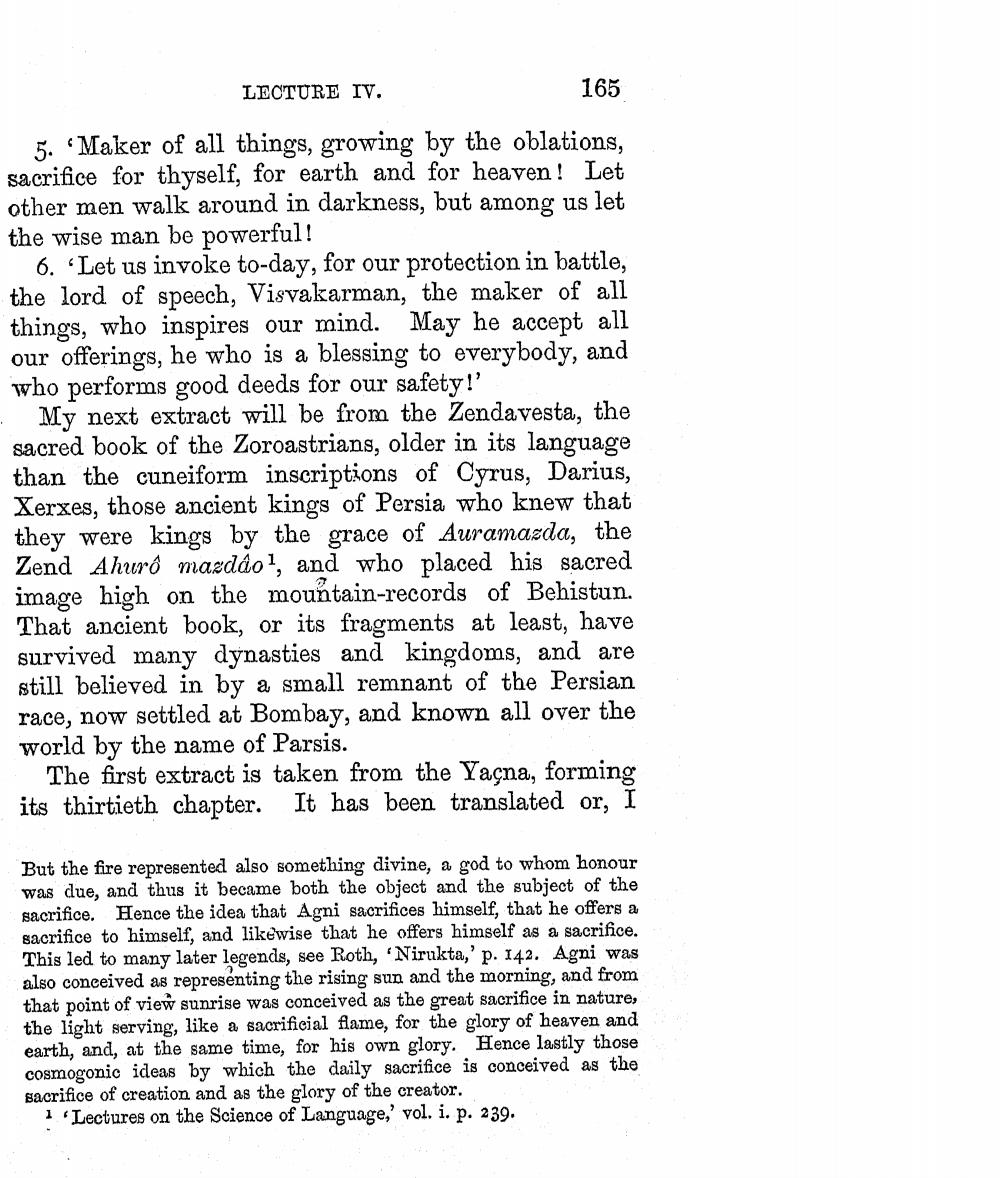________________
LECTURE IV.
165
5. "Maker of all things, growing by the oblations, sacrifice for thyself, for earth and for heaven! Let other men walk around in darkness, but among us let the wise man be powerful!
6. 'Let us invoke to-day, for our protection in battle, the lord of speech, Visvakarman, the maker of all things, who inspires our mind. May he accept all our offerings, he who is a blessing to everybody, and
who performs good deeds for our safety! · My next extract will be from the Zendavesta, the
sacred book of the Zoroastrians, older in its language than the cuneiform inscriptions of Cyrus, Darius, Xerxes, those ancient kings of Persia who knew that they were kings by the grace of Auramazda, the Zend Ahurô mazdaol, and who placed his sacred image high on the mountain-records of Behistun. That ancient book, or its fragments at least, have survived many dynasties and kingdoms, and are still believed in by a small remnant of the Persian race, now settled at Bombay, and known all over the world by the name of Parsis.
The first extract is taken from the Yacna, forming its thirtieth chapter. It has been translated or, I
But the fire represented also something divine, a god to whom honour was due, and thus it became both the object and the subject of the sacrifice. Hence the idea that Agni sacrifices himself, that he offers a sacrifice to himself, and likewise that he offers himself as a sacrifice. This led to many later legends, see Roth, Nirukta,' p. 142. Agni was also conceived as representing the rising sun and the morning, and from that point of view sunrise was conceived as the great sacrifice in nature, the light serving, like a sacrificial flame, for the glory of heaven and earth, and, at the same time, for his own glory. Hence lastly those cosmogonic ideas by which the daily sacrifice is conceived as the sacrifice of creation and as the glory of the creator.
1 Lectures on the Science of Language,' vol. i. p. 239.




